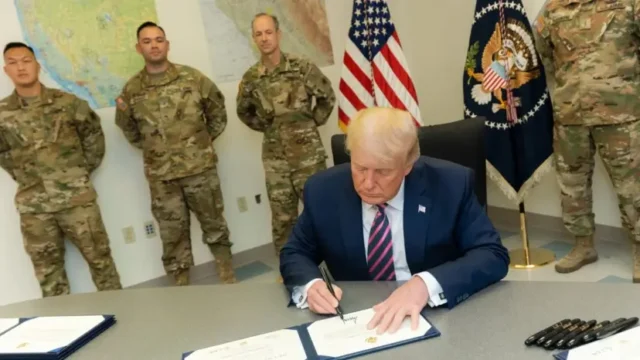The U.S. military has reportedly submitted contingency plans for potential invasion on Nigeria, following an instruction from President Donald Trump to prepare for action over what has been repeatedly refuted as false claims of Christian genocide.
The New York Times reported that the military officials disclosed that the “heavy option” presented by the command is the most forceful military response the US could take against Nigeria.
The command recommended utilising drone strikes on insurgent bases, camps, vehicles, and convoys in northern Nigeria as the medium option.

According to the New York Times, US Predator and Reaper drones might linger for hours before launching an attack; in the meantime, other US intelligence assets would develop targets’ life patterns to allow for accurate, timely strikes.
Additionally, the light option would focus on partner-enabled operations, according to military officials who spoke to The New York Times. The U.S. military and State Department would assist Nigerian government forces in their efforts to target Boko Haram and other Islamist insurgents who carry out attacks, kidnappings, and civilian killings.

According to the official, the plan’s main objectives are to combat Islamist extremists in northern Nigeria, shield Christians from violent conflict, and put an end to the nation’s decades-long insurgency.
However, there are several issues with these proposals.
The suggested measures by the U.S. military however, have drawn criticism, especially in relation to Nigeria’s sovereignty, the possibility of civilian casualties, and the possibility of increased tensions between Abuja and Washington if military action moves forward without clear diplomatic cooperation.

While the options given by Africa Command are being reviewed by the U.S. Department of War, a number of officials and analysts have voiced serious concerns about the potential consequences of putting any of the plans into action.





